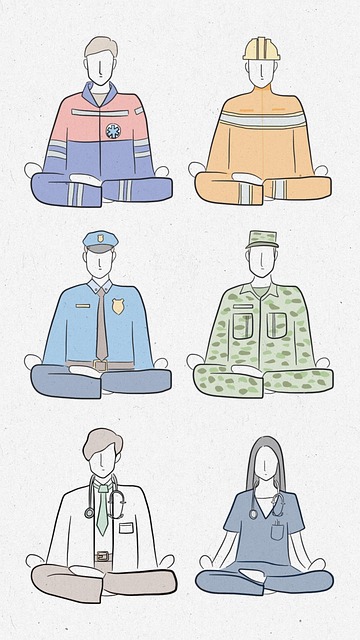Stress in young children often goes unnoticed due to limited vocabulary, but physical symptoms like headaches and changes in sleep patterns, as well as behavioral indicators such as increased irritability or withdrawal, can reveal underlying stressors. Identifying these stressors, which may include academic pressure, peer relationships, family dynamics, or major life changes, allows for effective support. Play therapy and journaling are powerful tools to help children process emotions and communicate, while self-care practices like exercise and emotional intelligence guidance build resilience against stress. Early stress management education through innovative therapy methods significantly contributes to the mental wellness of children.
Stress reduction is an essential aspect of child development, especially for young minds navigating their world. This article explores effective methods to help children cope with stress, focusing on play therapy as a powerful tool. We’ll delve into understanding the signs and causes of stress in young children, providing insights for parents and caregivers. Additionally, we’ll uncover various techniques to foster a calm mindset, offering practical strategies for promoting mental well-being through play and other engaging activities, tailored specifically for this age group.
- Understanding Stress in Young Children: Identifying Signs and Causes
- Play Therapy as a Powerful Tool for Stress Reduction
- Additional Techniques to Foster a Calm Mindset in Kids
Understanding Stress in Young Children: Identifying Signs and Causes

Stress in young children can often go unnoticed, as kids may not have the vocabulary to express their feelings. However, recognizing signs of distress is crucial for their mental wellness. Children might exhibit physical symptoms like headaches, stomachaches, or changes in sleep patterns, indicating they’re dealing with stress. Behavior-wise, look out for increased irritability, withdrawal from social activities, or sudden changes in appetite. These could be early indicators that something is upsetting them.
Identifying the causes of a child’s stress is key to providing effective support. Common triggers include academic pressure, peer relationships, family dynamics, or major life changes. Play therapy and journaling can be excellent tools for young ones to process their emotions and communicate their experiences. Engaging in self-care practices like regular exercise and cultivating emotional intelligence through guidance can also help children build resilience against stress.
Play Therapy as a Powerful Tool for Stress Reduction

Play Therapy offers a unique and powerful approach to stress reduction, particularly for young children. Through engaging in play activities, children can express their emotions, process traumatic experiences, and develop essential coping skills. This therapy utilizes natural child-driven exploration, allowing them to communicate their feelings in a safe and non-threatening manner. By encouraging imaginative play, kids learn to navigate and manage their stress responses, fostering resilience and emotional intelligence.
In Play Therapy sessions, therapists create a supportive environment that promotes creativity and self-expression. Activities may include building with blocks, storytelling, art, or role-playing games. These creative outlets help children process complex emotions, improve communication strategies, and build confidence in managing their inner world. By addressing underlying issues and providing healthy coping mechanisms, Play Therapy empowers young individuals to develop effective stress management techniques that can benefit them throughout their lives.
Additional Techniques to Foster a Calm Mindset in Kids

Teaching kids to manage stress early on is a valuable investment in their mental wellness. Beyond traditional relaxation techniques, there are innovative approaches like play therapy that prove effective. Through play, children can express and process emotions, cultivating emotional intelligence and resilience. This dynamic method facilitates open communication, allowing therapists to guide young clients towards healthier coping mechanisms tailored to their needs.
Incorporating creative activities such as art, music, and storytelling into therapeutic sessions further enhances these benefits. The Mental Wellness Podcast Series Production has played a significant role in popularizing these empathy-building strategies, making them more accessible to parents and educators. Additionally, Mental Wellness Coaching Programs Development offers structured support for both children and their caregivers, fostering healthier relationships and improved emotional regulation.
Stress reduction is an essential aspect of child development, and by understanding the signs and causes, parents and caregivers can effectively implement play therapy and other techniques to foster a calm mindset in young children. Play therapy offers a natural and engaging approach to helping kids process emotions, while additional methods like mindfulness exercises and creative arts can further enhance their ability to manage stress. By incorporating these strategies into daily routines, we can create a supportive environment that promotes emotional well-being for our young ones.










